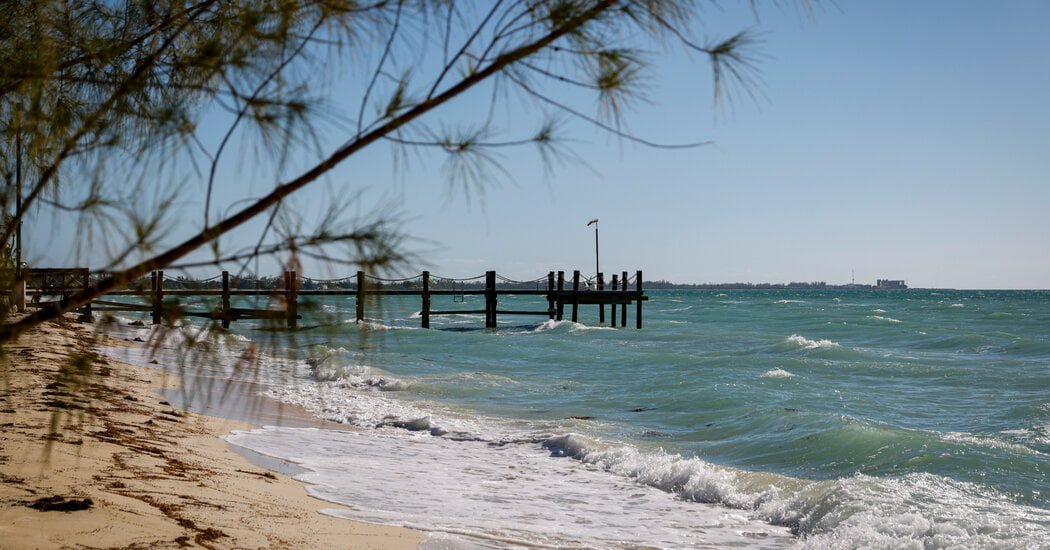Table of Contents
Drawn by clear turquoise waters and miles of white-sand beaches, around seven million travelers visit the Bahamas each year, but a new warning about increased violence on the island nation has raised alarm over the safety of visiting there.
On Jan. 24, the U.S. Embassy in Nassau, the capital of the Bahamas, issued a security alert advising U.S. citizens “to be aware that 18 murders have occurred in Nassau since the beginning of 2024. Murders have occurred at all hours including in broad daylight on the streets.”
The startling alert was unusual for the Bahamas. In addition to security alerts and other notices released by its embassies, the State Department issues travel advisories for countries to provide the suggested vigilance visitors should take. Currently, the Bahamas has a Level 2 (“Exercise increased caution”) warning.
Many tourism-reliant countries, including Costa Rica and the Dominican Republic, currently have Level 2 warnings, and most travelers experience safe and enjoyable vacations. The tourism industry in the Bahamas contributes around 70 percent of the nation’s gross domestic product, according to the U.S. Department of Commerce, and employs half the country’s work force.
Here’s what you need to know about the security alert and traveling to the Bahamas.
What prompted the alert in the Bahamas?
According to the State Department, “retaliatory gang violence has been the primary motive in 2024 murders,” and it is primarily affecting the local population, particularly on New Providence and Grand Bahama islands, where the cities of Nassau and Freeport are. The warnings mention that the violent crime has been occurring in both tourist and nontourist areas.
What does Level 2 mean?
To help advise Americans traveling to particular countries, the State Department employs a scale from 1 to 4 to indicate the local security situation, starting with the safest, Level 1. The levels can vary within a country, with certain areas considered a greater security risk than others.
According to the department’s website, Level 2 means, “Exercise increased caution: Be aware of heightened risks to safety and security.”
Many parts of the world are under Level 2 advisory, for reasons ranging from street crime to concerns over terrorism. The majority of visitors to those countries do not experience any danger — many are not even aware of the heightened risk indicated by the levels.
Level 3, by contrast, advises Americans to “reconsider” or “avoid” travel (countries such as Egypt, Nigeria and Pakistan are now at Level 3). Level 4 means “Do not travel” and emphasizes that “during an emergency, the U.S. government may have very limited ability to provide assistance.” Currently, Russia and Ukraine are among the countries with a Level 4 rating.
What about the rest of the region?
Currently, Turks and Caicos and Cuba are also Level 2 because of concerns over crime. Many areas of Mexico are under elevated warnings ranging from Level 2 (Mexico City) to Level 4 (Colima). On Jan. 23, Jamaica was raised to Level 3 because of crime and uneven medical care, with the State Department warning that “sexual assaults occur frequently, including at all-inclusive resorts.”
Aren’t there sharks in the Bahamas, too?
On Jan. 15, a 10-year-old boy was attacked by a shark while participating in a “shark experience” at a hotel on Paradise Island, according to the Royal Bahamas Police Force. He was reported to be in stable condition. Last month, an American woman died by shark attack while paddle-boarding in the Bahamas, the police said.
However, shark attacks are extremely rare in the Bahamas: The Florida Museum of Natural History’s International Shark Attack File indicates that there have only been 29 unprovoked attacks in the country since the 16th century.
How can I stay safe on my trip?
The U.S. Embassy in Nassau offers some guidance for staying safe, advising travelers to use “extreme caution” in the eastern part of New Providence Island — where Nassau is — especially “when walking or driving at night.” Specifically, the Over the Hill neighborhood, south of Shirley Street, should be avoided.
Travelers are also advised to take typical precautions and use common sense: to remain aware of their surroundings (leaving jewelry and electronics at home), to create a personal security plan, not to answer the door if you don’t know who it is and, if things go wrong, not to physically resist any robbery attempt. The U.S. government suggests staying especially vigilant if you’re staying at a short-term-rental property without a security presence, and women traveling alone may want to take special precautions.
Before traveling, consider obtaining traveler’s insurance, including a medical evacuation policy. Most foreign hospitals and doctors do not accept U.S. health insurance, including Medicare and Medicaid.
Another way to stay informed is to enroll in the State Department’s Smart Traveler Enrollment Program. The free program sends travelers updated information on security situations by email or text message, and makes it easier for a U.S. Embassy to contact you should an emergency arise.
Ultimately, travel comes down to a question of one’s personal comfort. If you interpret a Level 2 warning as sufficient reason to cancel your trip, there’s no shame in making a choice that eases your mind.
Follow New York Times Travel on Instagram and sign up for our weekly Travel Dispatch newsletter to get expert tips on traveling smarter and inspiration for your next vacation. Dreaming up a future getaway or just armchair traveling? Check out our 52 Places to Go in 2024.

